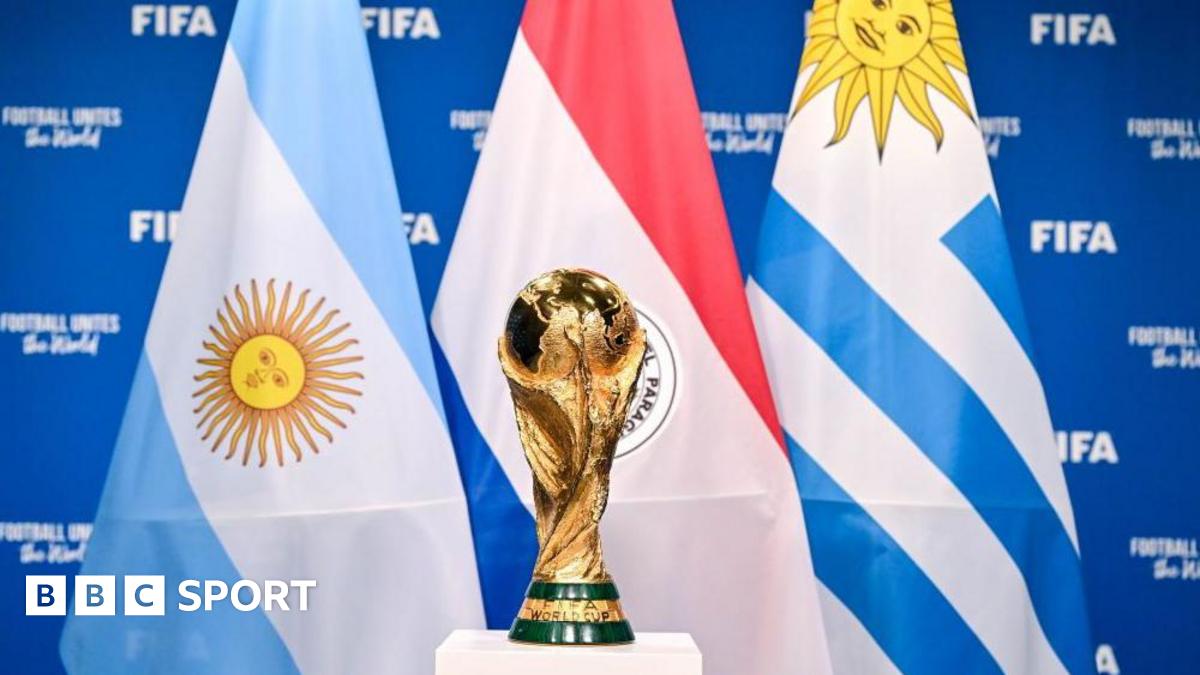2030 World Cup: Could a 64-Team Tournament Materialize in South America?
The 2030 FIFA World Cup is shaping up to be one of the most anticipated tournaments yet, with a potential expansion to 64 teams and a strong South American bid vying for hosting rights. This presents a fascinating confluence of factors, promising a spectacle unlike any other. But will the dream of a larger, South American World Cup become a reality? Let's delve into the details.
The 64-Team Proposal: A Game Changer?
The prospect of a 64-team World Cup is a significant departure from the established 32-team format. FIFA President Gianni Infantino has been a vocal proponent of expansion, arguing it would increase global participation and revenue. While this would undoubtedly broaden the scope of the tournament, it also raises several crucial questions:
- Tournament Length: A 64-team tournament would significantly extend the duration of the competition, potentially impacting player fatigue and fan engagement.
- Competitive Balance: The inclusion of more teams could lead to a wider disparity in skill levels, potentially resulting in some less competitive matches.
- Logistics and Infrastructure: Hosting a larger tournament requires extensive logistical planning and significant infrastructure investments, putting a considerable strain on the host nation(s).
South America's Joint Bid: A United Front
A joint bid by Argentina, Uruguay, Paraguay, and Chile is currently vying to host the 2030 World Cup. This represents a powerful collective effort, capitalizing on the rich footballing heritage of the region. The bid emphasizes the following:
- Centennial Celebrations: The bid coincides with the centennial anniversary of the first World Cup, held in Uruguay in 1930. This adds a significant symbolic weight to the proposal.
- Shared Passion for Football: South America boasts a fervent passion for football, guaranteeing electrifying atmospheres and enthusiastic support.
- Existing Infrastructure: While upgrades would be necessary, the region already possesses a considerable amount of suitable infrastructure to facilitate a successful tournament.
However, the South American bid faces competition from other interested parties, including a potential joint bid from Spain and Portugal. The competition is fierce, making the selection process highly anticipated.
Challenges and Opportunities for a 64-Team Tournament in South America
The success of a 64-team World Cup in South America hinges on addressing several crucial challenges:
- Securing Funding and Investment: The economic implications of hosting such a large-scale event are substantial, demanding considerable investment from both public and private sectors.
- Addressing Infrastructure Gaps: Upgrading stadiums, transportation networks, and accommodation facilities will be essential to meet the demands of a 64-team tournament.
- Ensuring Sustainability: The environmental impact of a large-scale event needs careful consideration, with strategies for minimizing the tournament's carbon footprint.
Despite these challenges, the opportunity to host a landmark World Cup is significant. A successful bid would provide a substantial economic boost to the region, along with showcasing its rich culture and passion for football to a global audience.
The Verdict: A Waiting Game
The final decision regarding the 2030 World Cup host and the tournament format remains pending. However, the South American bid, with its strong historical connection to the tournament and the possibility of a groundbreaking 64-team expansion, presents a compelling vision for the future of the FIFA World Cup. Only time will tell if this ambitious plan comes to fruition. Stay tuned for further updates as the decision approaches!
Keywords: 2030 World Cup, 64 teams, FIFA World Cup, South America bid, Argentina, Uruguay, Paraguay, Chile, World Cup expansion, football, soccer, Gianni Infantino, Spain, Portugal, tournament format
Internal Links: (These would link to other relevant articles on your website, if applicable) [Example: Link to an article about FIFA's expansion plans] [Example: Link to an article about previous World Cup hosting bids]
External Links: (These would link to relevant news sources or FIFA's official website) [Example: Link to FIFA's official website] [Example: Link to a reputable news source reporting on the bid]

